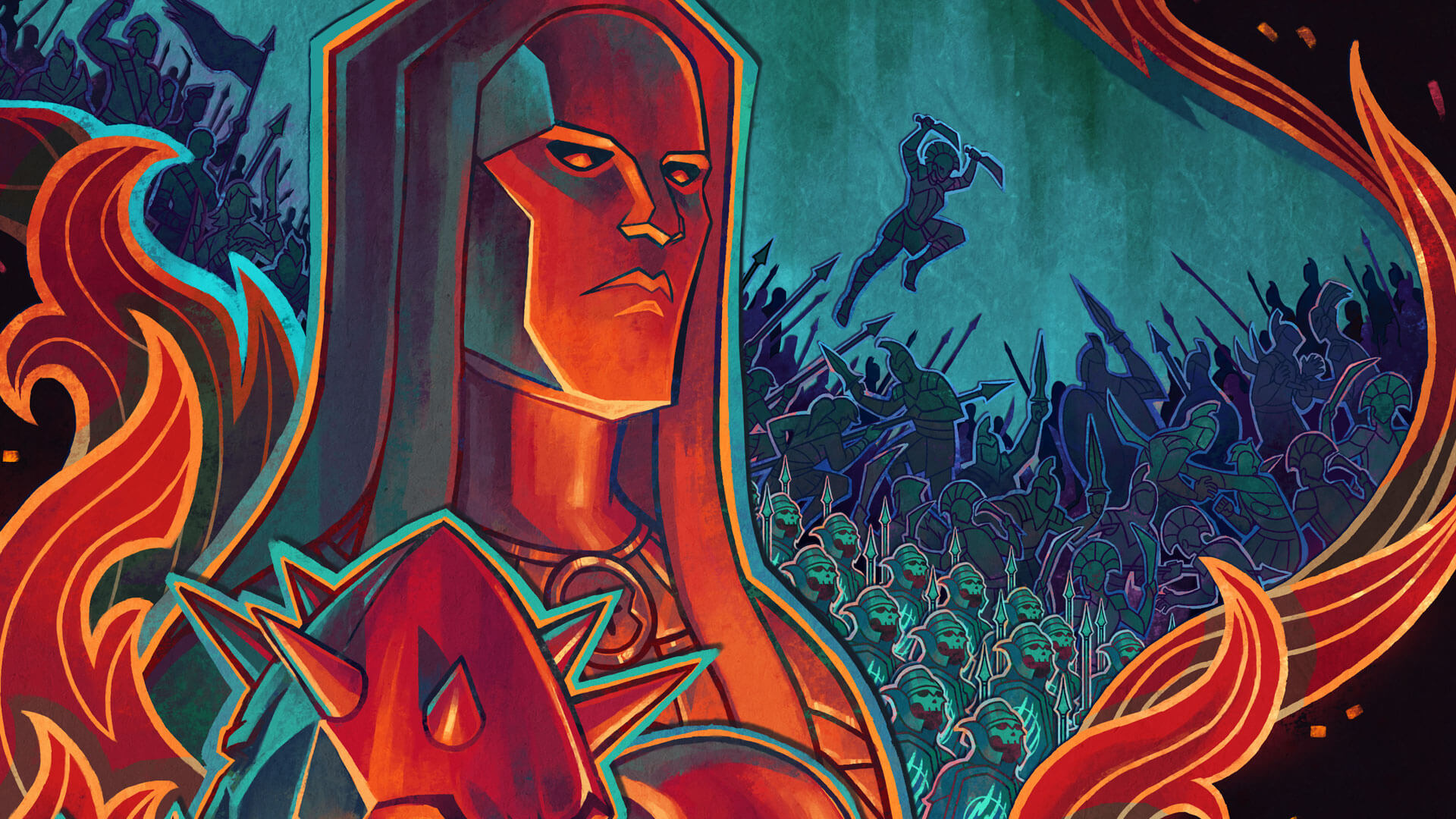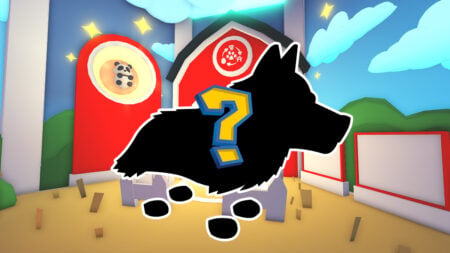Title: Tyranny
Available On: PC
Developer: Obsidian Entertainment
Publisher: Paradox Interactive
Genre: Adventure RPG
Official Site: https://www.tyrannygame.com/
Release Date: 11-11-16
Where To Buy: Steam, Local Retailer
The war between good and evil is over – and evil has won. Kyros, the Overlord, has conquered Terratus. Nearly every nation across the continent has fought and failed against the might of Kyros’ armies, being absorbed into the new, burgeoning empire. Now, once-free peoples must carve a new path under the thumb of Kyros and his many Archons: supremely powerful, magically-enfused champions that embody aspects like justice, war, and secrets. The will of Kyros is law, and all that defy it swiftly find themselves relenting – or dead.
Only one nation on Terratus has failed to bend the knee and adhere to Kyros’ Peace. The Tiersmen, of the Tiers. As a result, Kyros has sent their two most influential armies, the Disfavored and the Scarlet Chorus, to crush and conquer the Tiers. But tensions run high between these two formidable companies as well as their leaders, the Archons of War and Secrets, and the invasion is not quite going as smoothly as planned.
You take on the role of a Fatebinder, sworn to Tunon, Archon of Justice. During the attack on the Tiers, you act as judge, jury and executioner, the arbiter of Kyros’ laws. You wield enormous power and influence – but will you use them to serve Kyros, wreak destruction or simply build your own power? As the last footholds of the free nations falter, a simple Fatebinder could change the course of history forever.
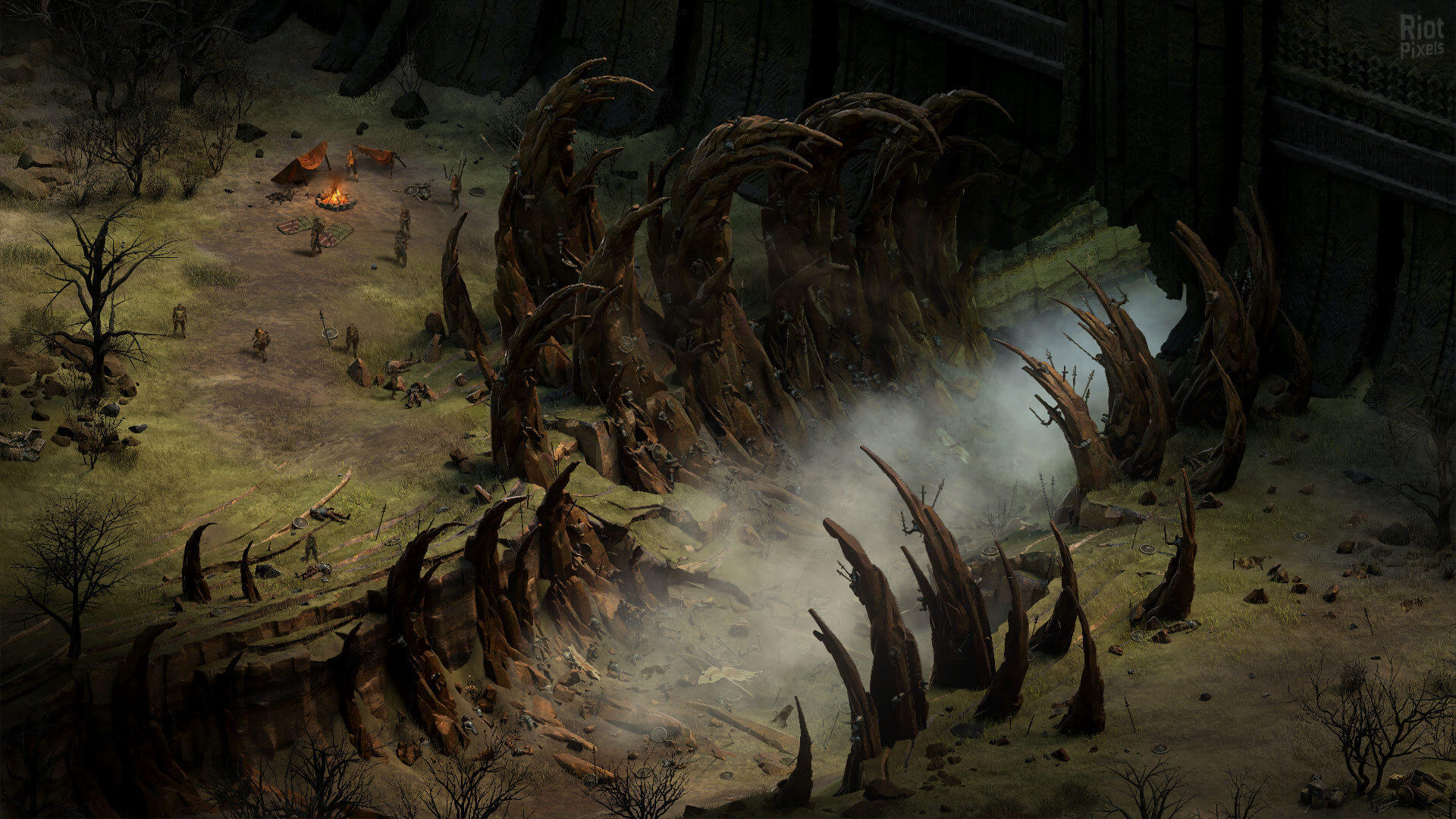
Plot
Obsidian Entertainment never fails to come up with a truly fantastic tale. Tyranny is no different. The sheer depth of the world and the characters within it are breathtaking, and the uniqueness of the setting constantly keeps you guessing as to what new revelation is next. While other modern RPGs are simple takes on classic tropes, the tales in Tyranny are always surprising, always interesting and constantly push you to dig deeper into the world.
Talking to your companions is a treat, with fantastic writing as well as voice acting. I found myself laughing heartily at Verse’s barbed quips, empathizing with Barik’s metallic situation, or conversing deeply with Eb and Lantry about the intricacies of magic. They all feel like very real characters, each with their own wants, needs and goals – and they don’t always match up with yours as a player. Companions in classic RPGs are often memorable because of the arguments you have with them – and in Tyranny, these come thick and fast.
Moving on to the world itself, every destination has some kind of tale, either ongoing or historical and often both. Speaking with the inhabitants of nearly any part of the Tiers will reveal some new fact (or factoid) about the area, and could inform you further on your future decisions on which faction you want to ally with – if any at all. Revisiting points of interest from the initial conquest and seeing what ramifications your tactics had can fill you with jubilation at a job well done, or equally as often, regret, as you realize your choices had impacts that you didn’t quite expect.
A major part of the plot in Tyranny is choice. Yes, I know, yet another game that is trying to say that choice matters. But the difference between Tyranny and other games is that it is successful in making your decisions as a player meaningful. Take the set-up at the start of the game, for example. As a Fatebinder, you wield plenty of power over the decisions made during the first three years of the invasion of the Tiers. Each year, you will be asked to make a set of decisions – most of them requiring you to side with one particular army or faction.
The decisions you make echo out into the world when you jump into the main story, affecting either people’s opinions of you or even forcing your hand into violence against factions you wronged. One playthrough with one set of decisions and loyalties could be made completely different compared to another playthrough. Obsidian isn’t afraid to lock you out of certain pieces of content because of your previous choices – something that is a brave move in a gaming industry where titles like Skyrim allow you to do anything with very little real consequence.
It makes decisions matter, and the loyalty/wrath system (more on that later) makes it so there are no good or bad choices. The good/evil dichotomy is done away with in Tyranny, both in gameplay and in plotline. And breaking that mold has never been more artfully done.
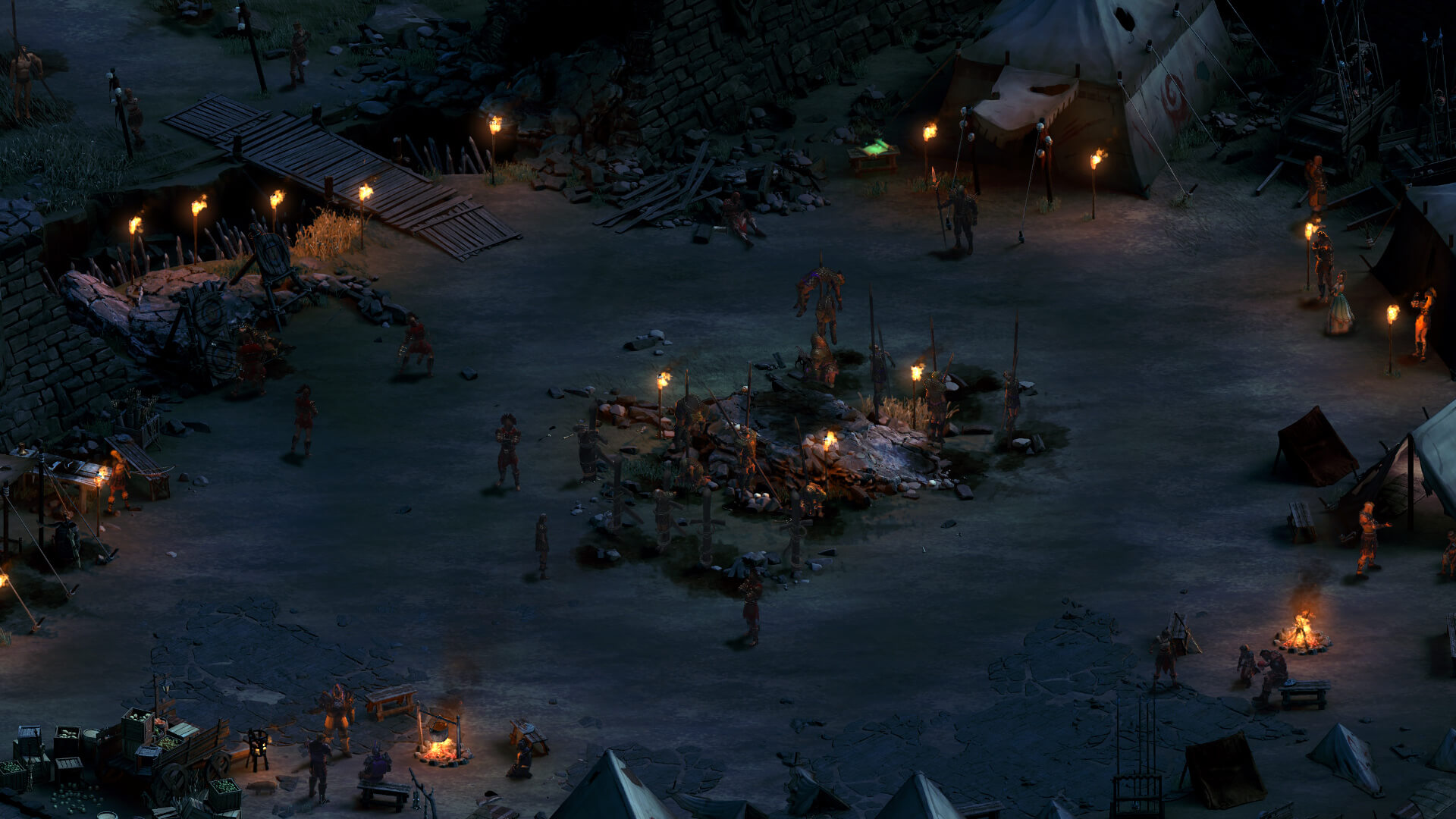
Gameplay
In typical classic RPG fashion, gameplay in Tyranny is centered around your party. Rather than the hefty six members of previous title Pillars of Eternity, Tyranny breaks things down with only four. Party members will throw in their own opinions and thoughts about situations during dialogue, as well as opening up unique options in some circumstances. Meanwhile, combat is heavily dictated by the roles that your party members (and the PC themselves) have been geared towards. Each have their own strengths, weaknesses, preferred traveling companions and loyalty and fear levels. Managing your party and its equipment, skills and reputation levels are the core mechanics in Tyranny – and they are extremely well done.
Unlike other classic-style RPGs such as Baldur’s Gate, Neverwinter Nights or even Pillars of Eternity, Tyranny is what I would called streamlined – but without too much of the reduction in depth that that word tends to connotate these days.
I’ll admit something to you – Pillars of Eternity was very difficult for me to play. It was an intense, in-depth game that often came across as a spreadsheet simulator on occasion. It required a lot of work from the player to optimize stats and party make-ups – though the rewards of doing so were all the more potent for it. But Tyranny is far more accessible. It still has resistances, damage ranges, and very particular talent trees, but it manages to keep it basic enough as to not be overwhelming for a new player.
Companions tends to have two or three talent trees, and you can customize their AI to push them towards certain in-party roles. Barik, for example, could either be a hard-hitting DPS-style off-tank, or he could go purely into the tank role. Verse, on the other hand, would nearly always be a DPS companion, but she could either point towards ranged attacks with a bow or dual-wielding weaponry. The fact that you could automate their ability use, rather than having to rapidly switch between each party member, was a welcome addition. You can always pause the game and micromanage combat, but most of the time the AI was wise enough to know the strengths of the characters in your party – and the best ways to make the most of their unique skills.
So it’s simplified compared to other, similar games, there’s no doubt about that. The way you level up, the style of talent trees for PCs and companions, the combat style and so on makes it very easy to get started in Tyranny, but combat can sometimes get a little repetitive after a few encounters with the same party make-up. There is a certain lack of depth in this regard compared to Pillars of Eternity, and I can understand why many would consider this a step in the wrong direction. Despite that, I believe there are more positives than negatives in the gameplay mechanics of Tyranny. Complexity does not always necessarily lead to depth, and Tyranny manages to be interesting without sacrificing too much along the way.
There are plenty of other nice little touches to discuss, such as the Spire upgrade system, companion progression, and spell crafting, but those are really better to find out about yourself. They aren’t integral to the experience, but they add a little spice to help adjust for the relative simplicity of other mechanics.
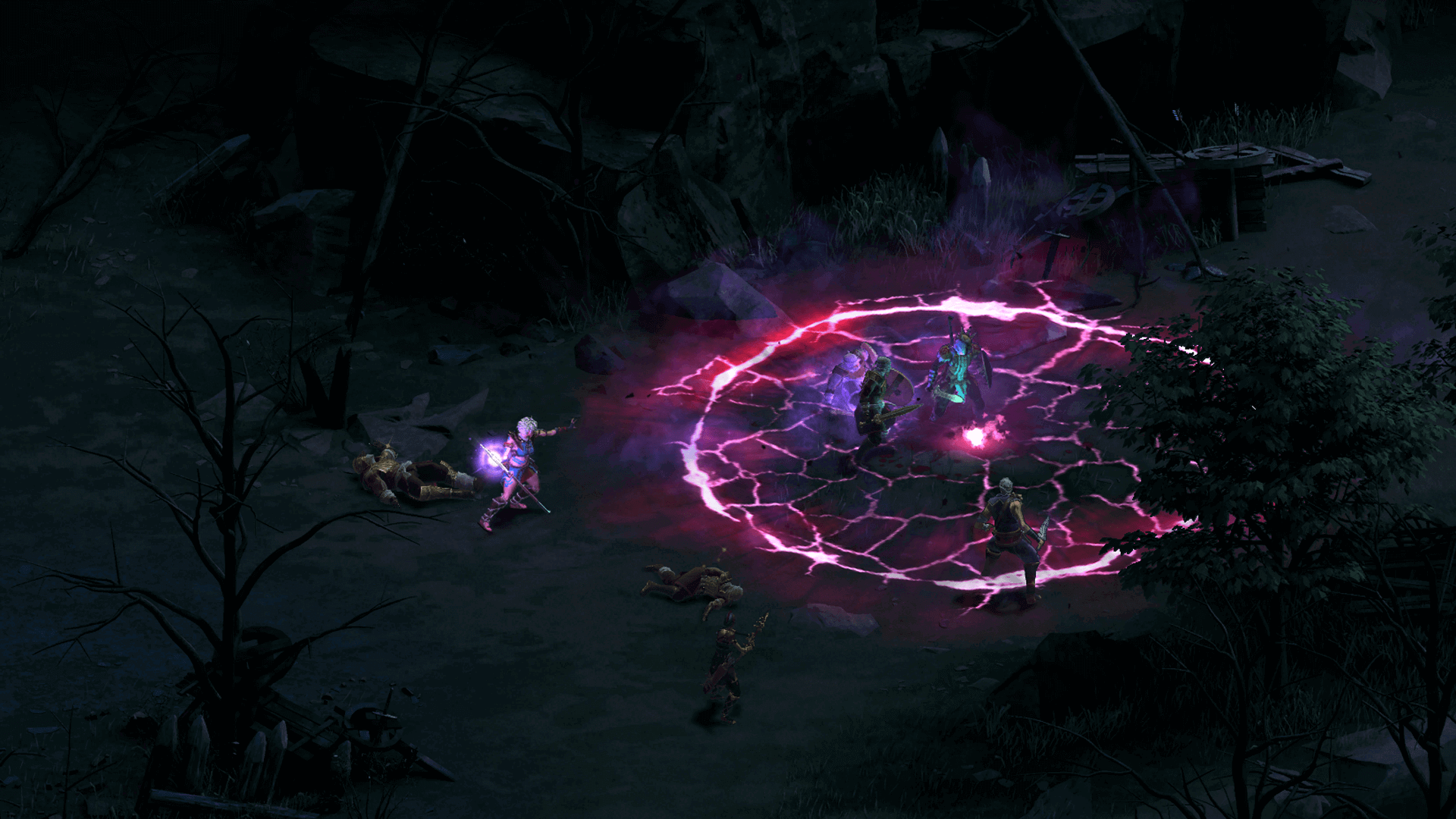
Graphics and Sound
Graphics in Tyranny are running on a modified version of the Unity engine, giving it a similar look to Pillars of Eternity, but with a distinct emphasis on a more vibrant, almost cartoonish, color palette. Movements are exaggerated, environments are bright and overall everything is relatively clean.
Meanwhile, on the soundscape side, there’s a full original soundtrack along with some quite phenomenal voice acting at key points.
There’s nothing really to pan about either the sound or look of Tyranny, except the slightly strange use of color vibrancy in a dark fantasy game. But perhaps that is just intended to make it distinct from other offerings – which it certainly manages to achieve, with blue, red and purple being particularly noteworthy parts of the color palette. There are some great hand-drawn environments which I have to congratulate the art team on – even the average village looks well-crafted and thought out. Top marks here as well.
The Unity engine is starting to show its age a little, but there are benefits to that – Tyranny is not likely to strain your computer too much. Feel free to bust out the toaster for this one, because it might just be able to play it without too many issues. The long load times did end up being irritating barriers to the game, but these were relatively few and far between, thankfully.
What’s definitely worth noting is the voice acting. There are some seriously great moments in this game, made almost purely by the excellent writing and equally excellent talents of the voice actors involved. The banter of Verse, the holier-than-thou honour-bound musings of Barik, Eb’s indecency and Kills-From-Shadows’ growling are all memorable and engaging, while interactions with the Archons and other non-companion NPCs who have the luck of being voiced are also all top-shelf offerings.
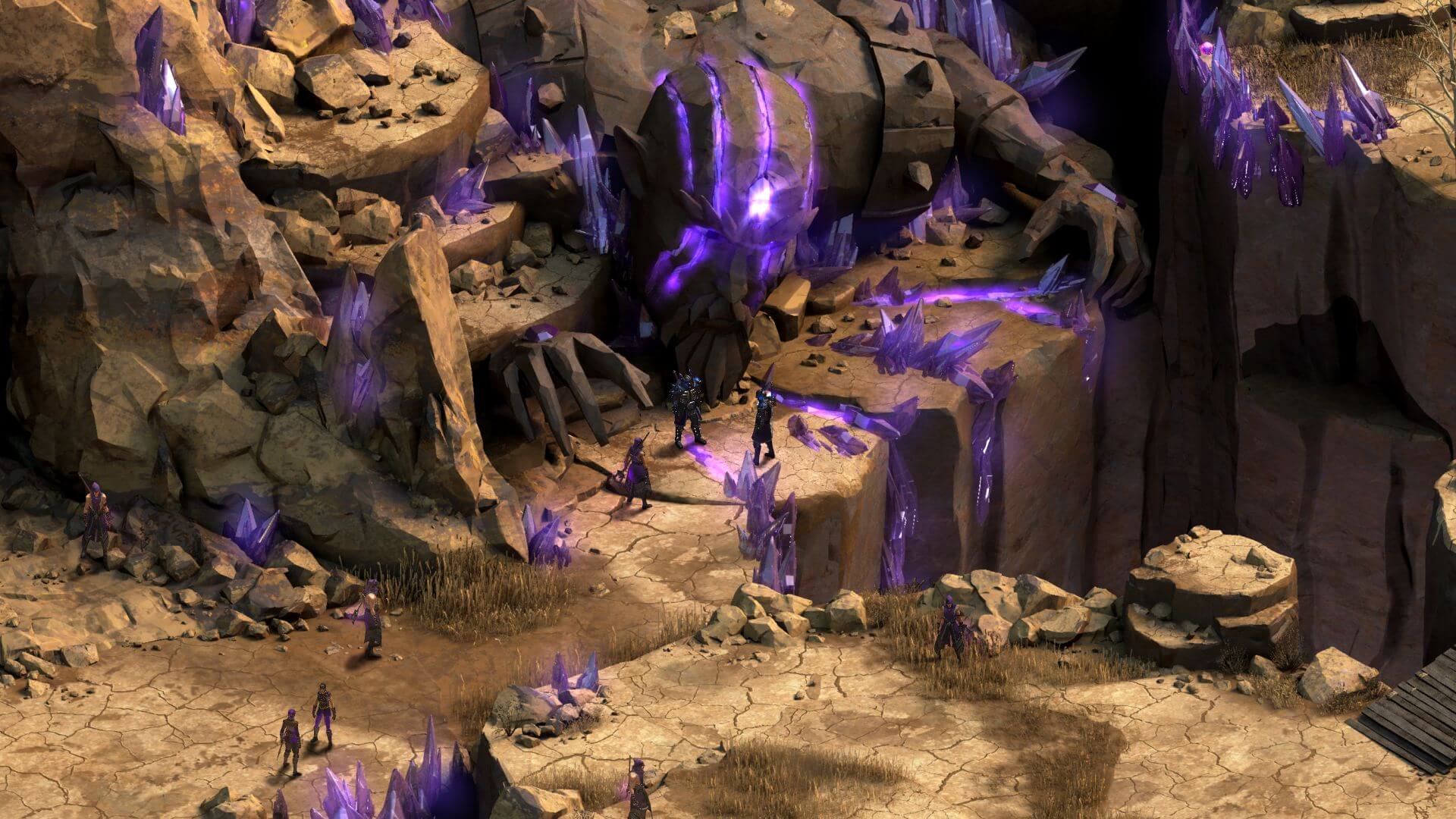
Conclusion
Overall, Tyranny has to be one of the best games I’ve played throughout 2016. The great story, the characters and the unique world make this a memorable, exciting experience, while the simplified gameplay takes the effort out of enjoying it. It retains enough depth to make you want to replay it multiple times – in fact, if you don’t, you’ll be missing out on a fair bit of content -and it’s a great place to start for people new to classic-style isometric RPGs and returning veterans alike.
The fact that it removes good and evil and just makes it about choices and consequences is a particular highlight and one that a lot of story-based modern games could learn from. While it does fall over a little in terms of campaign length (about 25 hours per run), the replayability and multiple branching storylines almost completely erase that issue. The final act could be seen as a little disappointing – but that’s a decision you’ll need to make for yourself.
If this isn’t in your library already, it needs to be.
[embedyt] https://www.youtube.com/watch?v=Sg0WsR3EnGg[/embedyt]
[gap height=”15″]
- Gameplay: Simplified and accessible, but with enough depth to make it interesting.
- Graphics: High saturation, lots of primary colors, verging on cartoonish – but not too far.
- Sound: Fantastic voice acting and a decent OST.
- Presentation: Overall, a fantastic offering from Obsidian that provides an accessible, well-constructed world for the player to explore.
[review]

